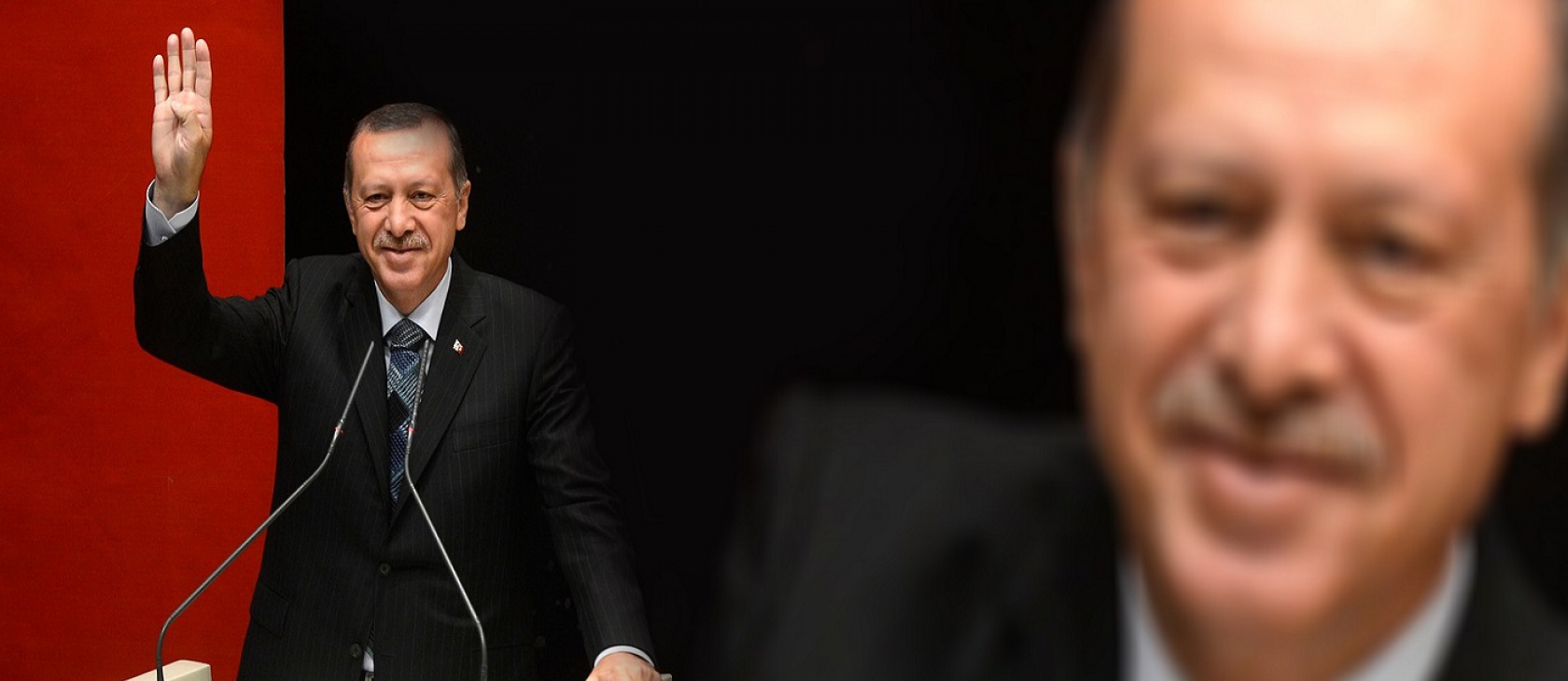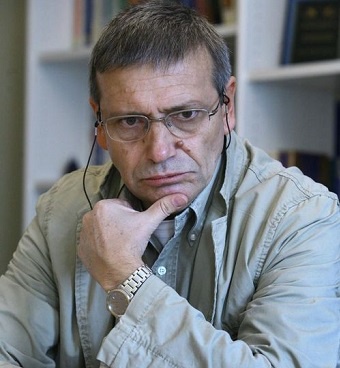On Monday, the leaders of the EU will hold a summit in my home country of Bulgaria, which they have invited Turkish President Recep Tayyip Erdoğan to address. The meeting will take place in Evksinograd Palace near the Black Sea port of Varna, a structure built by Bulgarian King Ferdinand of Sax-Cobourg and Gotha, who led the First Balkan War against the Ottoman Empire in 1912-1913. Erdoğan is unlikely to be sentimental about the meeting’s location or content. In their invitation, Donald Tusk and Jean-Claude Junker wrote that the meeting “will be a good opportunity to jointly assess matters of mutual interest and recent developments in your country, including in the area of rule of law and fundamental freedoms, which remain fundamental to the fabric of and prospects for EU-Turkey relations, as well as regional and international issues.”
Those issues are mounting by the minute.
Turkey is leading a military campaign – with the oxymoronic name “Operation Olive Branch” – against the U.S.-based Syrian Defense Forces in Afrin. Although the SDF includes Kurdish separatists linked to those who have committed terrorism against Turkey, the SDF is the key factor checking the spread of ISIS in northern Syria. Their defeat could usher in genocide against the region’s Christian, Druze, and other religious minorities.
Turkey is also taking aim at the economic and political freedom of EU members. The nation has prevented Cyprus from allowing for oil exploration off in its own Exclusive Economic Zone, blocking an Italian company from drilling offshore in February. “The European Council strongly condemns Turkey`s continued illegal actions in the Eastern Mediterranean and the Aegean Sea,” the group stated on Thursday, adding that Turkey should “respect the sovereign rights of Cyprus to explore and exploit its natural resources in accordance with...the law.” The Turkish foreign ministry condemned the statement and said the EU lacks “objectivity.”
Concern is also warranted over Erdoğan’s crackdown on civil liberties and intellectual freedom in his own country, following the July 15, 2016, attempted coup d’état led by ex-imam Fethullah Gülen. Judging by those he has arrested, the coup must have been organized by judges, teachers and intellectuals. In late February, 38 Nobel Prize laureates in literature, science, medicine and economics sent Erdoğan an open letter protesting “the unlawful detention and wrongful conviction of writers and thinkers” in Turkey. Ahead of Monday’s summit, a Bulgarian press association has issued accreditation passes for 95 imprisoned Turkish journalists as a form of protest. Turkey is also holding two EU citizens – Greek soldiers who strayed across the border – prisoner to leverage the return of eight Turks allegedly involved in the coup.
Erdoğan’s rhetoric raises the possibility that he has designs well outside his borders.
Turkey’s “spiritual frontiers” include Europe
Speaking at his party regional convention in the Turkish city of Sakarya, on the Black Sea, some 100 miles east of Istanbul, Erdoğan said that the town of Kardzhali, Bulgaria, is part of Turkey’s “spiritual frontiers.” This was immediately interpreted by both Socialist opposition and United Patriots, Borisov’s coalition partners, as a “dangerous provocation” that implies “potential claims” on Bulgarian territory. The town was reclaimed by Bulgaria as a result of the Balkan wars of 1912-1913, and since then the borders have never been contested. But about half of the district in which Kardzhali is located is comprised of ethnic Turks. Erdogan went on to speak of “our brothers in Bosnia and Herzegovina, Kosovo, Albania, Macedonia, Serbia, Western Thrace, Crimea, Bulgaria and Romania,” mentioning several additional towns in those countries by name. He often repeats that contemporary Turkey inherited just a small fraction of Ottoman territory and that he would mind the interests of his “suffering brothers and sisters” now living in other countries.
Despite these provocations, the EU summit is unlikely to solve the underlying problems for at least three reasons: the EU’s reliance on Turkey to stem the flow of Syrian refugees, Erdoğan’s friendly relationship with Bulgarian President Boyko Borisov, and the EU's spiritual identity crisis.
Syrian refugees: Facilitating the facility
The most important issue in the EU-Turkey deal (a “facility” in Euro-speak) according to which, in 2016-2017 Turkey was to receive €3 billion to host the refugees or enable their trip back to Syria. The extension of the facility presumably tops the Varna summit’s agenda. As of December, only €1.85 billion has been distributed, and Erdoğan said he plans to tell EU officials in Varna, “Don’t keep delaying it; give us the money.” This is complicated by the fact that, in mid-March, evidence emerged that Turkey is systematically torturing Syrian refugees in its custody, according to The Irish Times. Furthermore, if Turkey is engaged in the ethnic cleansing of Syrian Kurds from territories near Turkish enclaves, the entire facility will look not just hypocritical but outrageous.
Borisov has justified his positive relationship with Erdoğan by citing Ankara’s threat to open its borders to Syrian refugees bound for Europe. “Bulgaria will be the first to be hit,” Borisov said. Thus, he has been making significant gestures to support Erdoğan’s causes. The most important of these was his extradition of the Turkish IT businessman Abdullah Büyük from Bulgaria back to Turkey in August 2016. The Turkish government tied him to the coup leader. (Büyük has declared under oath that he never knew Gülen or any of his associates.) Yet Borisov went forward with the extradition, even though it violated the Bulgarian constitution and Turkey did not promise a fair trial upon his return.
Borisov has consistently advocated for Erdoğan at the EU Council, where Bulgaria currently holds the rotating presidency. "I am very pleased with the EU's decision to normalize its relations with Turkey, not just because of the migrants, but in the interest of cooperation and support within NATO," he said. (Borisov has also made concessions to Russian President Vladimir Putin that have undermined NATO.)
Prospect: Paralysis
Despite these mounting issues, it is likely that little constructive will come of Monday’s summit. Both sides are too invested in the status quo. Turkey’s export to the EU account for 44.5 percent of its global exports, and if the Turkish economy falters, the Balkans will be the first to benefit from capital flight. Furthermore, elections are scheduled for the fall of 2019, and Erdoğan’s Justice and Development Party has slipped five percent in approval ratings since last October.
For their part, EU leaders have too many centrifugal emergencies to deal with to prioritize Turkey. They, too, will most likely avoid any extraordinary confrontation over human rights. What would please both sides of the talks in Varna is the extension of the refugee facility for several additional years and a commitment to continue consultations. And thus the 31-year-old issue of Turkey’s relationship with the EU will be kicked down the road again.
A constructive EU meeting would focus on Turkey’s violation of human rights, destabilization of the entire region for ISIS, and the looming genocide of northern Syria’s ancient Christian population. It would denounce the disregard of private property rights in Cyprus. And it would note that a crackdown on civil liberties within its own nation is not compatible with European values.
Finally, Erdoğan’s comments about “spiritual frontiers” should spur the EU to rediscover its own spiritual foundations. EU leaders repeatedly state that these sacred rights, which have their roots in Christianity, are universal in scope and application. The EU should demand they apply throughout Turkey before taking another step toward granting Ankara membership in the EU.








